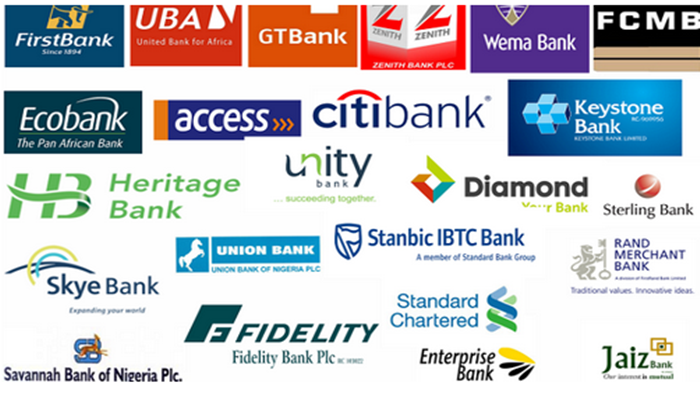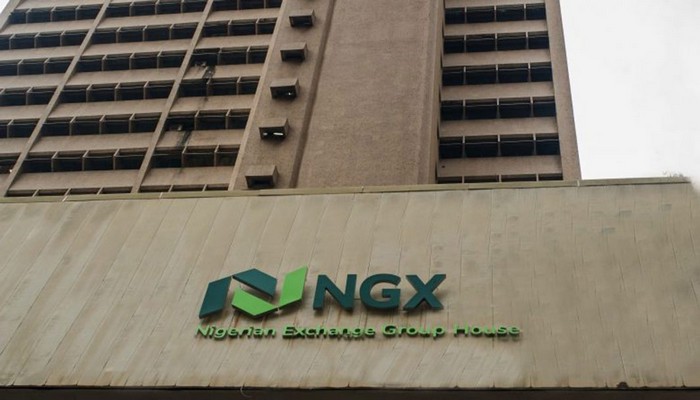
The year 2020 will remain indelible in the annals of history due to the impact of the COVID-19 pandemic on the world.
The pandemic brought the world into exceptionally difficult and largely uncharted waters.
In no time, the whole world came to a standstill with lockdowns, global recession, financial crises, reduced consumer confidence and consumption as key concerns occasioned by COVID-19.
It was, indeed, a year during which individuals, corporate organisations, economies and businesses were forced to think outside the box to ensure sustainability.
To tackle the impact of the pandemic, various governments introduced several policies; Nigeria, and its key organisations, were not left out.
Consequently, the Central Bank of Nigeria (CBN) reduced interest rates on all applicable CBN interventions, from nine to five per cent and introduced a one-year moratorium.
It also created a N50 billion targeted credit facility, and liquidity injection of N3.6 trillion (stimulus package in the form of loans) into the banking system.
Others were: N100 billion to support the health sector, two trillion naira to the manufacturing sector, N1.5 trillion to impacted industries in the real sector and regulatory forbearance to restructure loans in impacted sectors, among others.
In spite of the ravaging effects of the COVID-19 lockdowns and various policy tweaks by the CBN on the economy, most banks in Nigeria weathered the storm by posting stronger profits in 2020 compared with 2019 as shown by earnings released by the Nigerian Exchange (NGX) Ltd.
This indicates that despite the lockdown there was an increase in banking activities as loans and advances and customer deposits rose.
According to experts, this shows that Nigeria has a peculiar and distinct domestic economy unlike other economies where banks recorded a significant decline in profit in 2020.
Indeed, profits of some banks listed on the NGX showed increase in gross earnings as well as profit after tax.
Specifically, Access Bank reported gross earnings of N764.72 billion in 2020 compared with N666.75 billion in the comparative period of 2019.
The bank’s profit before tax stood at N125.92 billion in 2020, from N111.93 billion in 2019, while its profit after tax closed higher at N106.01 billion against N94.06 billion in 2019.
FBN Holdings also had a good outing during the lockdown, declaring profit before tax of N83.70 billion from N75.29 billion in 2019, while profit after tax rose to N89.75 billion against N73.67 billion in the comparative period of 2019.
The bank, however, recorded gross earnings of N579.42 billion in 2020 compared with N590.39 billion in 2019.
Further analysis of audited results released by the NGX indicated that Guaranty Trust Bank posted gross earnings of N455.23 billion in 2020 from N435.31 billion in 2019.
Its profit before tax rallied to N238.09 billion compared with N231.71 billion recorded in 2019.
Similarly, profit after tax rose to N201.44 billion against N96.85 billion reported in 2019.
An analysis of the performance of the United Bank for Africa (UBA) showed gross earnings of N620.38 billion from N559.81 billion declared in 2019.
The profit before tax of the bank grew to N131.86 billion in contrast with N111.29 billion posted in 2019.
The bank’s profit after tax in the review period closed upbeat at N113.77 billion compared with N89.09 billion in 2019.
Zenith Bank was not left of the banks that recorded jumbo profits in 2020 as it posted profit before tax of N255.86 billion against N243.29 billion declared in 2019, while its profit after tax closed higher at N230.57 billion from N208.84 billion in 2019.
The bank also recorded gross earnings of N696.45 billion in 2020 in contrast with N662.25 billion achieved in 2019.
2020 was also rosy for Union Bank of Nigeria, posting profit before tax rose of N25.4 billion from N24.7 billion in 2019, while its profit after tax closed at N24.7 billion against N24.4 billion in 2019.
However, the bank’s gross earnings slightly reduced to N156.9 billion in 2020 as against N159.9 billion in 2019.
Stanbic IBTC recorded gross earnings of N234.45 billion against N233.81 billion in 2019.
It also reported profit before tax of N94.71 billion in contrast with N90.93 billion in 2019, while profit after tax stood at N83.21 billion from N75.09 billion in the comparative period.
The question agitating the minds of Nigerians is; what magic did the banks do to churn out such fantastic profits during the lockdowns?
Mrs Nneka Onyeali-Ikpe, Managing Director, Fidelity Bank Plc, acknowledged that the 2020 financial year was challenging due to the collapse of oil prices and issues around the COVID-19 pandemic.
She said the banking industry, through resilience, surmounted the challenges by churning out profits, and that the apex bank also gave banks a leeway by insisting that all corporates were given palliatives and forbearances during the period.
“In Fidelity Bank especially, we made sure that we supported our SMEs, which is our strength, we made sure they observed the protocols, we made sure our branches observed the protocols because if customers go down, we will go down,” Onyeali-Ikpe said.
Speaking on 2021 expectations, she said “the business is looking up very well, we expect a much better 2021, and the numbers are even showing that.
“Our first quarter numbers are very strong and as you can see, we achieved 53.9 per cent above our profit before tax, quarter-on-quarter last year and this is a very strong sign and we are definite that 2021 would be much better than 2020,” she added.
Mr. UK Eke, the Group Managing Director, FBNH, said the company was pleased to close the year 2020 in a healthy financial position in spite of the difficult operating environment.
He said the company engaged a portfolio optimisation strategy, deepened its foothold in the banking sector through increased investment in digitalisation, innovation, and expansion in financial services for the benefit of existing and new customers.
“Five years ago, we outlined our strategy to diversify our income stream by boosting non-interest income through a transaction-led banking model.
“We believe this decision reduced the burden on our customers during the lockdown by providing seamless access to banking service, as well as, support the effort of the Government and other donor agencies to reach Nigerians with the COVID-19 support programmes,” Eke said.
To Mr Kennedy Uzoka, the Group Managing Director/Chief Executive Officer, UBA, the year 2020 was important for the UBA Group, as it gained further market share in most of its countries of operation.
He said: “We ended a very challenging year on a reassuring note. The Bank recorded double-digit growth in both our top and bottom lines, as gross earnings and after-tax profit grew by 10.8 per cent and 27.7 per cent to N620.4 billion and N113.8 billon respectively.”
According to him, despite the tumultuous impact of the COVID-19 pandemic globally and across the 23 countries where the bank operates, UBA created N519.0 billion additional loans as it continued to support its customers and their businesses.
“Customer deposits grew 48.1 per cent to N5.7 trillion, driven primarily by additional N1.8 trillion in retail deposits. As a global bank, we remain well capitalised and determined to successfully drive financial inclusion on the continent through our innovative products and vast network.
“Our capital adequacy and liquidity ratios came in at 22.4 per cent and 44.3 per cent, well above the respective regulatory minimum of 15.0 per cent and 30 per cent,” Uzoka added.
Financial analysts are also not surprised that the banks defied the lockdown by posting good profits in 2020.
The Chief Operating Officer, InvestData Ltd., Mr Ambrose Omordion, said Nigerian banks and other corporates performed very well in 2020 in spite of the outbreak of coronavirus that drove the global and domestic economy into recession with oil prices hitting the lowest at 12 dollars before rebounding.
“Nigeria banks were resilient in 2020 in the midst of pandemic as their performance and profitability ratios were up irrespective of headwinds, low interest regime and others.
“The electronic or e-commerce platforms of the banks through technology supported them during the lockdown and after, government and CBN interventions in critical sectors of the economy helped the banks to stay afloat and remain in profit,” Omordion said.
Omordion’s views align with those of Mr Moses Igbrude, former Publicity Secretary, Independent Shareholders Association of Nigeria, who attributed the performance of banks to enhanced technology due to the COVID-19 pandemic.
“The banking sector of the capital market is a sector that gladdened the hearts of shareholders so far in this year, despite the challenges of the COVID-19 pandemic.
“All banks came out strong and better rewarding shareholders with good dividends and the performance was as a result of technology deployment during and after lockdown,” Igbrude said.
He urged banks to sustain the trend through efficient management of resources, innovation, loans management, cost management and adherence to regulatory rules and regulations.
With the fantastic profits posted by many Nigerian banks in 2020, there is no doubt that better days are ahead, and experts agree that, even in 2021, and post COVID-19 era, the profits will soar higher.
An analysis by Chinyere Joel-Nwokeoma, News Agency of Nigeria (NAN)






